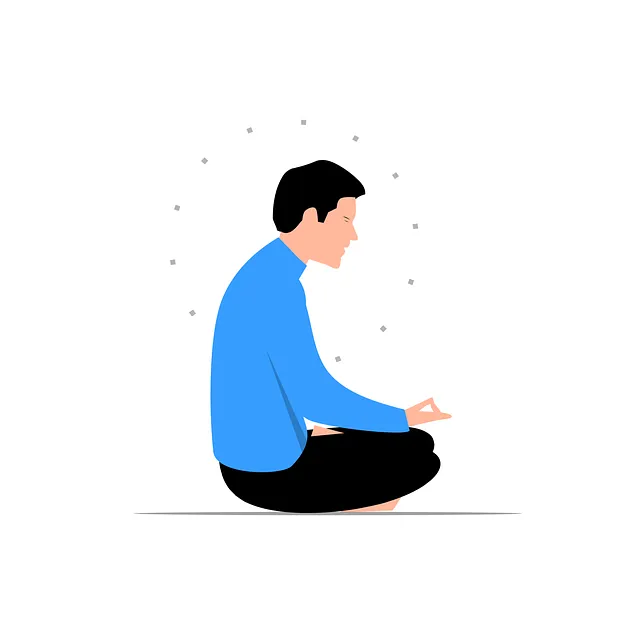The Littleton Kaiser Permanente Mental Health Center emphasizes the significance of coping skills in managing life's challenges and maintaining mental well-being. They offer guidance through various techniques, including Crisis Intervention, Self-Care Routine Development, conflict resolution, mindfulness meditation, and cognitive behavioral therapy (CBT). By learning these skills, individuals can enhance stress management, overcome anxiety, and build resilience, leading to improved mental health outcomes. The center's holistic approach encourages personal introspection, self-awareness exercises, and compassion cultivation for effective coping, ultimately empowering individuals to navigate life's uncertainties with control and balance.
Coping skills development is an essential aspect of maintaining mental well-being, particularly in navigating today’s stressful world. This article, offered by the Littleton Kaiser Permanente Mental Health Center, delves into understanding coping skills and their significance. We explore effective mechanisms for managing stress and anxiety, providing practical strategies to identify personal stressors and triggers. Additionally, we present a toolkit of techniques and offer tips on integrating these skills seamlessly into daily life, empowering individuals with tools promoted by Littleton Kaiser Permanente Mental Health Center.
- Understanding Coping Skills: An Overview by Littleton Kaiser Permanente Mental Health Center
- The Significance of Developing Effective Coping Mechanisms
- Strategies for Identifying Personal Stressors and Triggers
- Building a Toolkit: Practical Techniques for Coping with Stress and Anxiety
- Integrating Coping Skills into Daily Life: Tips from Littleton Kaiser Permanente Mental Health Center
Understanding Coping Skills: An Overview by Littleton Kaiser Permanente Mental Health Center

Coping skills are essential tools for navigating life’s challenges and maintaining good mental health. According to Littleton Kaiser Permanente Mental Health Center, understanding these skills involves recognizing that everyone faces stressful situations, but how individuals react and cope differs greatly. The center emphasizes that developing effective coping strategies is a process that can significantly enhance one’s ability to manage stress, anxiety, and even trauma.
Littleton Kaiser Permanente offers valuable insights into various techniques, including Crisis Intervention Guidance and Trauma Support Services. They advocate for Self-Care Routine Development as a proactive approach to better mental health. By learning these skills, individuals can transform their reactions to stressful events, fostering resilience and overall well-being.
The Significance of Developing Effective Coping Mechanisms

Developing effective coping mechanisms is a vital skill, especially in navigating life’s challenges and stressors. At the Littleton Kaiser Permanente mental health center, professionals emphasize the importance of equipping individuals with robust coping tools to enhance overall well-being. In today’s fast-paced world, where demands and expectations are ever-increasing, having healthy coping strategies can be a game-changer. It allows people to manage stress, overcome obstacles, and maintain a sense of balance.
Effective coping mechanisms empower individuals to confront problems head-on, foster resilience, and promote better mental health. The Littleton Kaiser Permanente center advocates for various methods, including conflict resolution techniques, self-awareness exercises, and mind over matter principles. These strategies teach people to recognize triggers, regulate emotions, and respond adaptively, thereby reducing the negative impact of stress and anxiety. By investing time in developing these skills, individuals can transform their lives, fostering a sense of control and peace amidst life’s uncertainties.
Strategies for Identifying Personal Stressors and Triggers

Many individuals often overlook the subtle signs their mind and body send when facing stress. At the Littleton Kaiser Permanente mental health center, experts emphasize that identifying personal stressors and triggers is a crucial first step in developing effective coping strategies. This process involves introspection and awareness of one’s emotions and reactions to different situations. By keeping a journal, for instance, individuals can track patterns in their feelings, noticing when specific events or interactions tend to trigger stress or anxiety.
Engaging in self-reflection, coupled with practices like mindfulness meditation, encourages folks to observe their thoughts and behaviors without judgment. This heightened awareness allows for the recognition of recurring stressors that might not be immediately apparent. Compassion cultivation practices, a key component of resilience building, can also aid in this process by fostering an understanding of one’s vulnerabilities and strengthening emotional coping mechanisms.
Building a Toolkit: Practical Techniques for Coping with Stress and Anxiety

At the Littleton Kaiser Permanente mental health center, we understand that developing effective coping skills is a crucial aspect of maintaining good mental health. That’s why our experts have curated a comprehensive toolkit to help individuals navigate stress and anxiety. This toolkit includes a range of practical techniques tailored to suit different needs and preferences.
One key component of our toolkit are Self-Awareness Exercises. By encouraging mindful reflection, these exercises empower individuals to recognize their triggers, understand their emotional responses, and develop healthier coping mechanisms. In addition to these, we offer evidence-based practices such as cognitive behavioral therapy (CBT), mindfulness meditation, and relaxation techniques, all designed to enhance Mental Health Awareness and foster resilience in the face of life’s challenges. For those who have experienced trauma, our Trauma Support Services provide specialized care and support to help individuals process and heal from past traumas, further enriching their coping skillsets.
Integrating Coping Skills into Daily Life: Tips from Littleton Kaiser Permanente Mental Health Center

Integrating coping skills into daily life is a crucial step toward enhancing mental well-being. According to the Littleton Kaiser Permanente Mental Health Center, this process begins with identifying triggers and developing personalized strategies. The center advocates for a holistic approach, encouraging individuals to incorporate mindfulness exercises, such as meditation or deep breathing, into their routines to manage stress. Additionally, they suggest setting achievable goals and breaking tasks into manageable steps, fostering a sense of accomplishment and reducing anxiety.
For effective implementation, the Littleton Kaiser Permanente Mental Health Center recommends combining these techniques with structured programs like Social Skills Training and conducting regular risk assessments for mental health professionals. This comprehensive approach ensures individuals not only learn coping mechanisms but also gain practical tools to navigate challenges in their personal and professional lives, fostering a more resilient mindset. Incorporating these strategies into daily life can significantly contribute to improved mental health outcomes, as emphasized in Mental Health Policy Analysis and Advocacy discussions.
Developing coping skills is a powerful tool offered by the Littleton Kaiser Permanente Mental Health Center to navigate life’s challenges. By understanding and implementing effective strategies, individuals can enhance their resilience and overall well-being. The article has provided an insightful journey through various aspects of coping, from recognizing personal stressors to integrating these techniques into daily routines. With practical techniques and expert advice from the Littleton Kaiser Permanente team, readers are equipped with the knowledge to build a robust toolkit for managing stress and anxiety, ultimately fostering a healthier and more balanced life.



